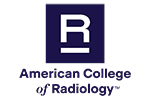Chronic Chest Pain-Noncardiac Etiology Unlikely: Low to Intermediate Probability of Coronary Artery Disease
When chest pain continues for more than a few days or weeks, it is called “chronic.” Chronic chest pain can have many causes. Chest pain that is related to the heart is called “cardiac” and may be caused by blockage of the arteries around the heart (coronary artery disease). Chronic chest pain that is not related to the heart is called “noncardiac.”
To determine if chest pain is likely to be caused by heart disease, doctors may use a risk assessment tool, such as the Framingham risk score, Diamond Forrester method, Duke Clinical Score, or coronary calcium score.
When doctors feel that chest pain may be caused by heart disease (low to medium likelihood), imaging tests are usually recommended. Tests that may be appropriate include CT angiography coronary arteries with intravenous contrast (CT scan of the coronary arteries), ultrasound echocardiography transthoracic stress (ultrasound of the heart during exercise or after stress medication), MRI heart with function and vasodilator stress perfusion without and with intravenous contrast (MRI of the heart after stress medication), Rb-82 PET/CT heart and single-photon emission computed tomography myocardial perfusion imaging, or SPECT/CT MPI (examinations that use radioactive materials).
— By Alexa Silfen and Nina S. Vincoff, MD. This information originally appeared in the Journal of the American College of Radiology.
This page was reviewed on November 01, 2022


